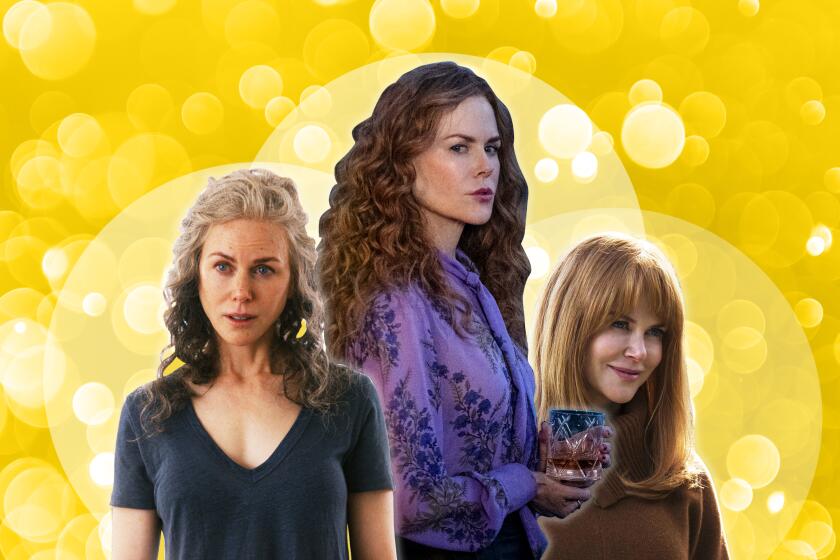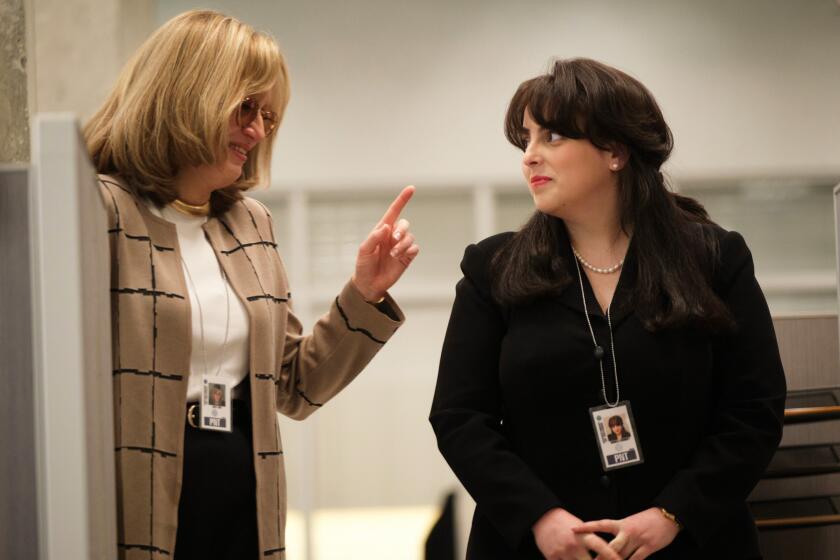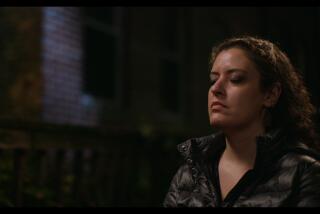How ‘Nine Perfect Strangers’ hopes to make psychedelic therapy mainstream
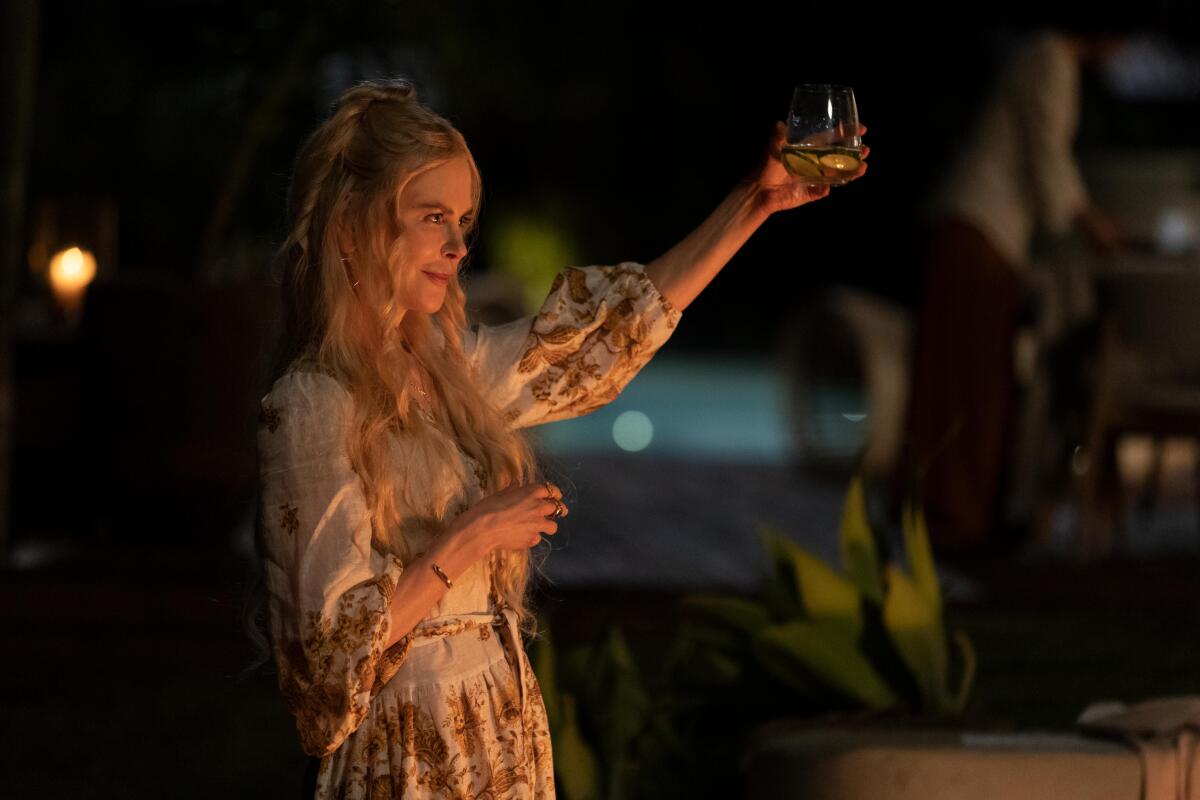
Midway through Hulu’s limited series “Nine Perfect Strangers,” created by David E. Kelley, the guests at a luxurious wellness retreat on a remote stretch of the California coast realize that their host, Masha (Nicole Kidman), has been drugging them with psychedelics. They’re initially upset: They hadn’t given consent for this.
But none of them leave.
For the record:
2:37 p.m. Sept. 15, 2021An earlier version of this story misidentified the actor playing Carmel in “Nine Perfect Strangers” as Regina King. It is Regina Hall.
While a form of psychedelic-assisted therapy is depicted throughout the series, based on the novel by Liane Moriarty (“Big Little Lies”), the show takes a lot of liberties. Masha is ignoring oodles of ethics, probably doesn’t even have a therapy license and is definitely breaking the law. Yet she has an unerring belief that she can make her guests well again using her protocol. And her belief is catching.
The complete guide to home viewing
Get Screen Gab for everything about the TV shows and streaming movies everyone’s talking about.
You may occasionally receive promotional content from the Los Angeles Times.
“Nine Perfect Strangers” director Jonathan Levine shares Masha’s belief: Psychedelic therapy “is one of my top five options for the salvation of humanity,” he says. In order to immerse himself in the topic prior to filming the series, Levine read “How to Change Your Mind,” Michael Pollan’s seminal book on psychedelic-assisted therapy, and consulted with a leader of a retreat for the use of ayahuasca, a psychoactive tea traditional to a number of Indigenous South American peoples.
Levine says he hopes that “Nine Perfect Strangers” will help these therapies go mainstream. Psychedelic-assisted therapy isn’t quite legal yet in the United States, but it’s close. MDMA is on track for FDA approval in 2023, and psilocybin is expected to gain approval a year or two after that. And while you can’t (officially) attend your very own Tranquillum in the U.S. just yet, you can travel to other parts of the globe: Psychedelics such as psilocybin and ayahuasca are offered at retreats in countries including Jamaica and Costa Rica, where these substances are legal.
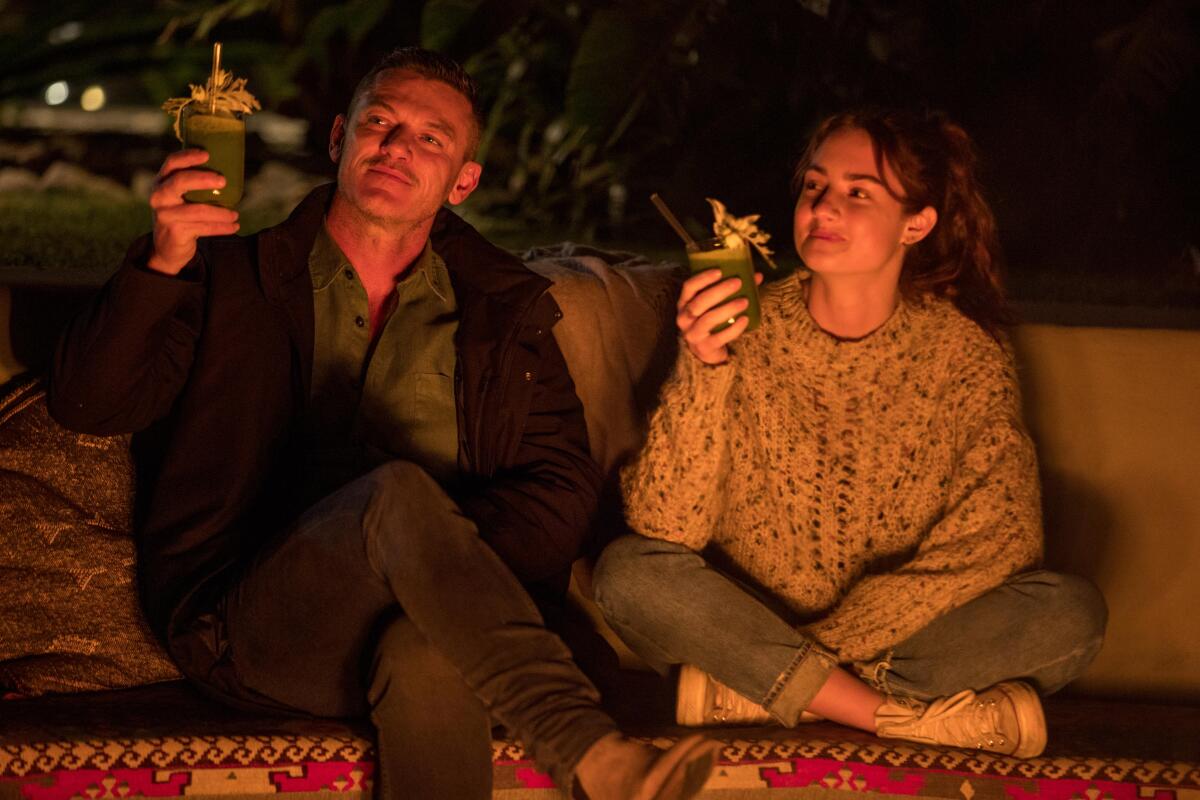
These therapies show immense promise in both one-on-one and group settings and, as Masha says, they could “change everything.” And though Levine would call her method “unorthodox-slash-questionable,” he never wanted to portray her as a “snake oil salesman.” Instead, the team behind the series discussed prominent, enigmatic figures such as Willy Wonka and Elizabeth Holmes to gain a sense of Masha’s intentions.
“She’s obsessed with fixing these people, and she will do anything to make that idea that you can fix people in 10 days come true,” Levine says. “Including things that kind of run contrary to that idea. So there’s a bit of hypocrisy to her as well. But I also think there’s a nobility in her quest.”
The series might stretch the truth a bit in terms of what real-life psychedelic-assisted therapy might look like, but the creative team wanted to be as accurate as possible when portraying the hypnotic feeling of sinking into a trip. Levine says he worked with the cinematographer to give things a “progression.” They mapped out specific choices for lenses, compositions and even colors used in the frame to make the viewer feel like “your mushrooms have kicked in and you haven’t even noticed.”
The blur between reality and the trip was important. “We didn’t want to do a thing where there was a line between ‘Now everyone’s messed up,’” Levine says. “We wanted to sort of subtly do it and have the altered state just sort of take over so that you’re questioning what’s real and what’s not.”
Since “Big Little Lies,” the Oscar winner has brought prestige to a medium eager for it — and inspired a wave of stories about affluent women on the verge.
Similar attention was paid to the actors’ performances. Levine says he established an “editorial arsenal” of trippy reactions, asking characters to “zone out for a minute” before certain scenes. He and the actors also talked through some of the more in-depth moments, such as when Tony (Bobby Cannavale) can’t seem to join his friends in the swimming pool. Levine recalls, “Bobby [and I] talked about not adding a bunch of bells and whistles to it. He’s just playing the fact that it’s really hard to get into a swimming pool [while on mushrooms], and that’s what makes it funny. The stakes of it are immensely high for him.”
As the story has progressed, the stakes have become high for almost everyone. Masha is playing with fire by impulsively increasing doses — and now, with just one episode left, she’s gotten high on her own supply.
Plus, things are going terribly wrong with one of her guests.
It’s been clear from the start that Carmel (Regina Hall) is not the best candidate for psychedelic-assisted therapy. She’s never given a concrete diagnosis, but she’s certainly experiencing symptoms of psychosis and mania. As psychedelics can exacerbate these conditions, a history of these symptoms — or disorders that are marked by these symptoms —can be a disqualifying factor at retreats that offer this type of treatment. This is something that “Nine Perfect Strangers” gets right.
However, given that psychedelic therapy research in the United States skews overwhelmingly white, it’s curious that the series chose to illustrate one of the two guests of color as having a violently negative reaction to the drug. Levine explains, “The character of Carmel was not written as white or nonwhite. All that stuff was written before we cast Regina, and I tried not to change too much based on the race of the character. This show is not necessarily occupied with explorations of race and class. It’s more preoccupied with empathy and humanity and exploring what these things can do for and to each character.”
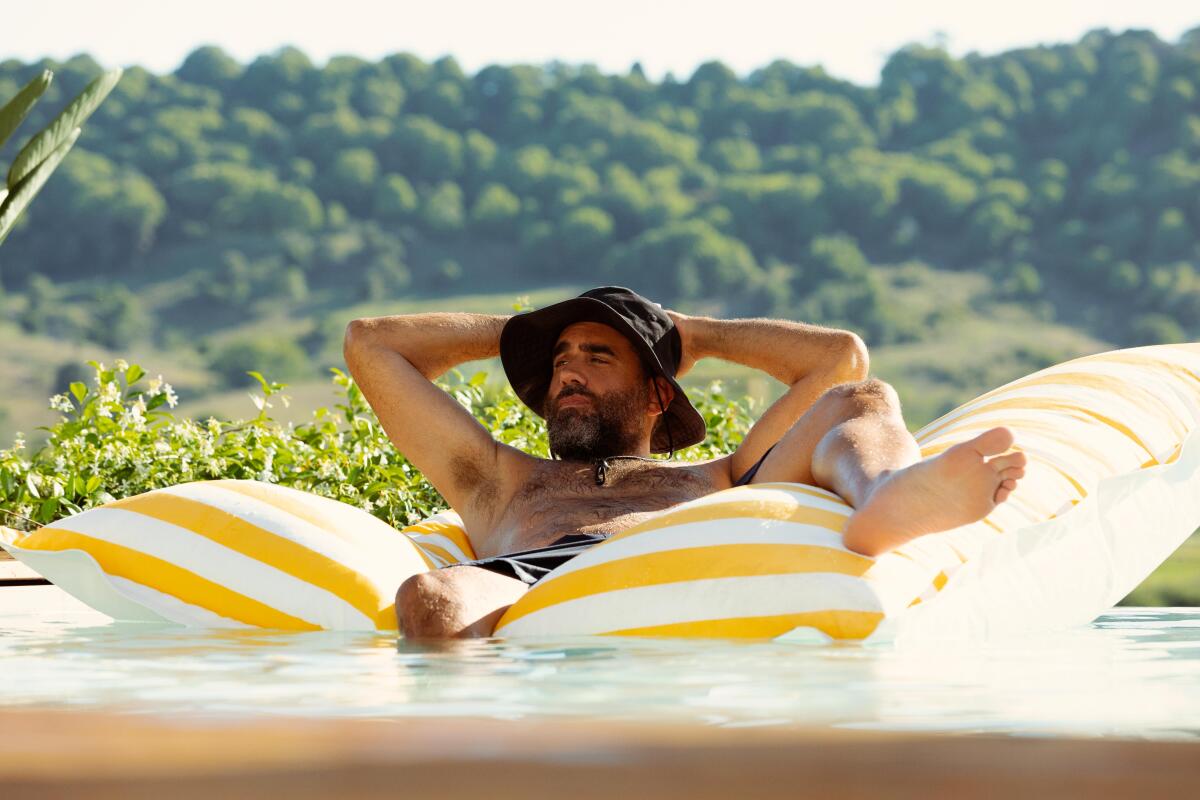
In certain settings, psychedelic-assisted therapy can be incredibly helpful. But Masha isn’t utilizing any evidence-based practices here; she’s operating mostly on brash instinct. She so badly wants all her guests to be well that she’s blinded herself to everything else. Levine says, “depending on where you land on whether her intentions are noble or not, she became obsessed.” And, for better or worse, the nine strangers are all along on this journey with her.
One interaction in Episode 7, “Wheels on the Bus,” mirrors the desperation for wellness that informs much of the market for it, science-based and otherwise, in the U.S. When the youngest guest, Zoe (Grace Van Patten) insists, “This can’t be the way,” her mother, Heather (Asher Keddie), quickly dismisses her: “Well, I’ve tried everything else.” Heather, along with many other guests at Tranquillum, is so consumed by the desire to feel a release from the gnawing pain within her that she will follow anywhere, even when Masha takes her protocol to dangerous heights.
The third season of Ryan Murphy’s limited drama chronicles the impeachment through the eyes of the women involved: Monica Lewinsky, Linda Tripp and Paula Jones.
Levine wanted the series to reflect open-mindedness about where these therapies are going. He says, “Whatever we’re doing now is not working. Masha gives that speech at the beginning of the fourth episode where — essentially there’s a bit of madness to her in that moment, but there’s also a feeling that this could change the world.”
If the increasing number of psychedelic retreats and overwhelming volume of requests to participate in psychedelic therapy research are any indication, there is going to be a great demand for these medications once they are legalized in the United States. Levine understands this quest for wellness, and wanted to let viewers know he sympathizes with that struggle. “Every single person has problems, and I hope that the audience can see their own problems [in the show] and see that we’re presenting them without much judgment,” he says.
Levine reflects on the overall portrayal of psychedelic-assisted treatment in the show by asking a few questions: “Such a big part of the show is, ‘What is one’s perspective on the world, and what is reality?’ Can we create our own reality? Can we manipulate our own reality? And how do we move past our past?”
More to Read
The complete guide to home viewing
Get Screen Gab for everything about the TV shows and streaming movies everyone’s talking about.
You may occasionally receive promotional content from the Los Angeles Times.
